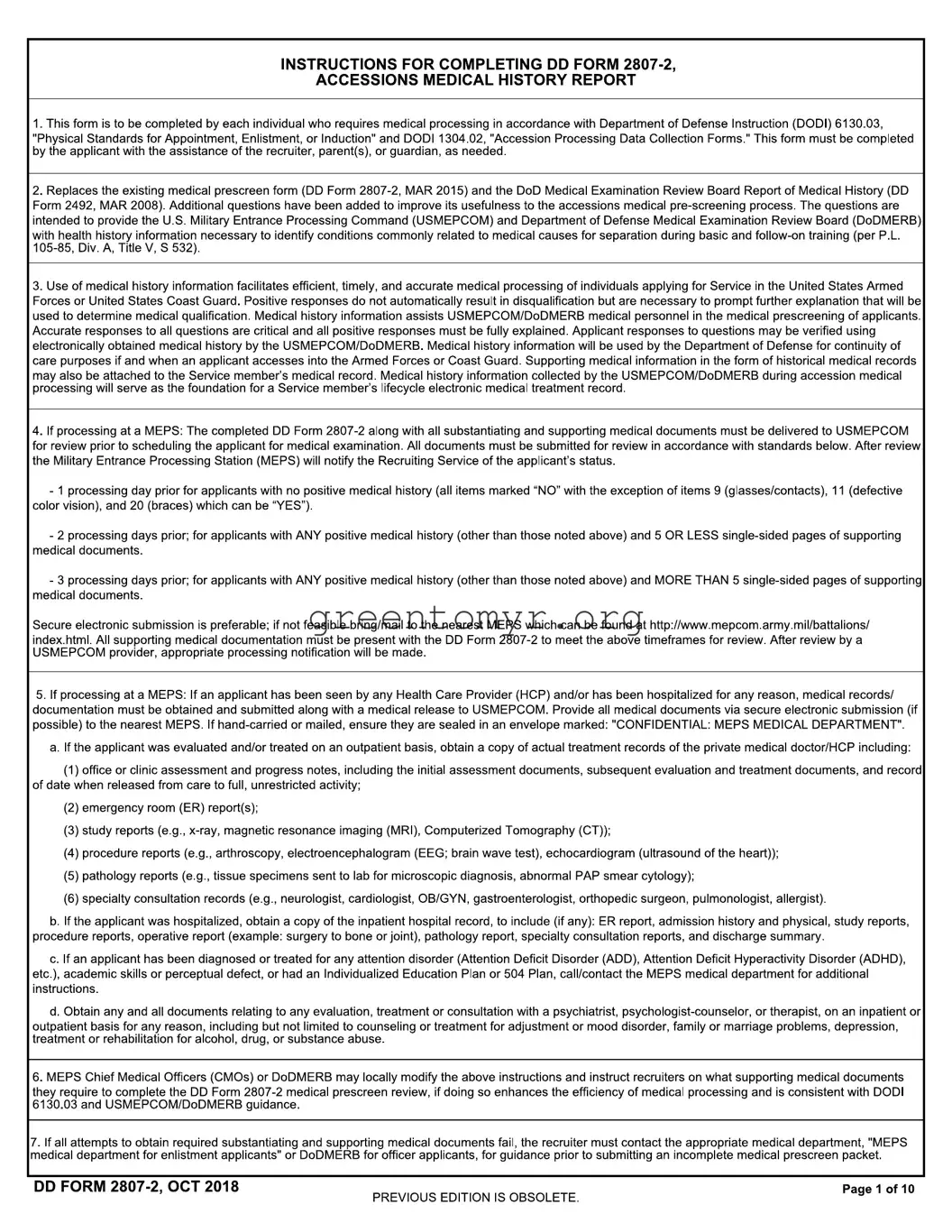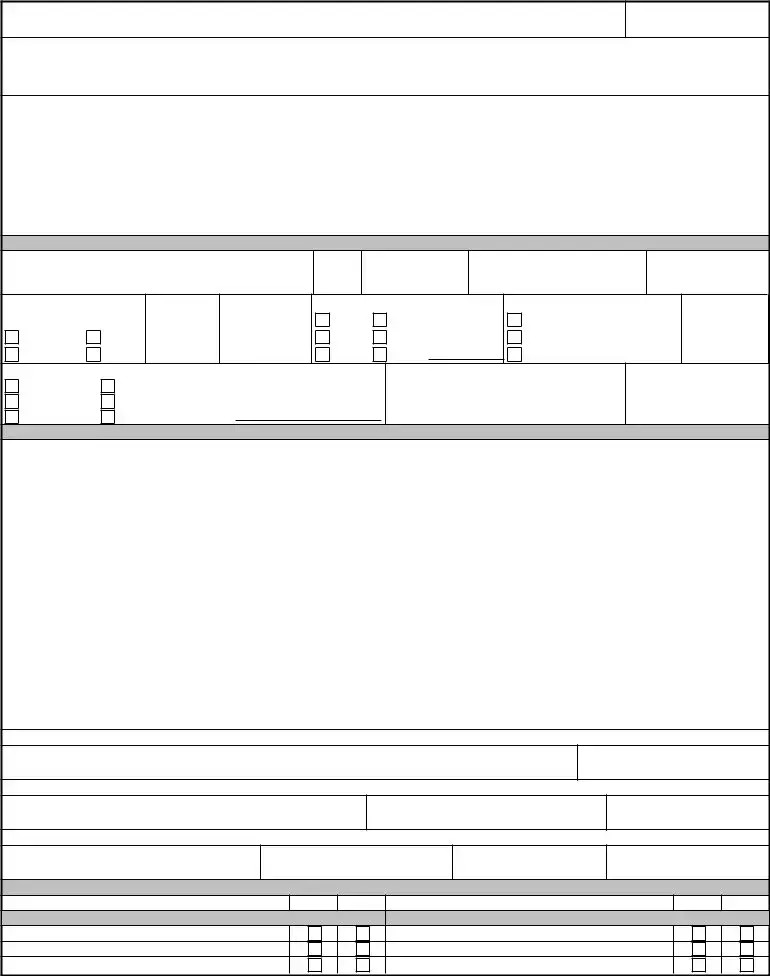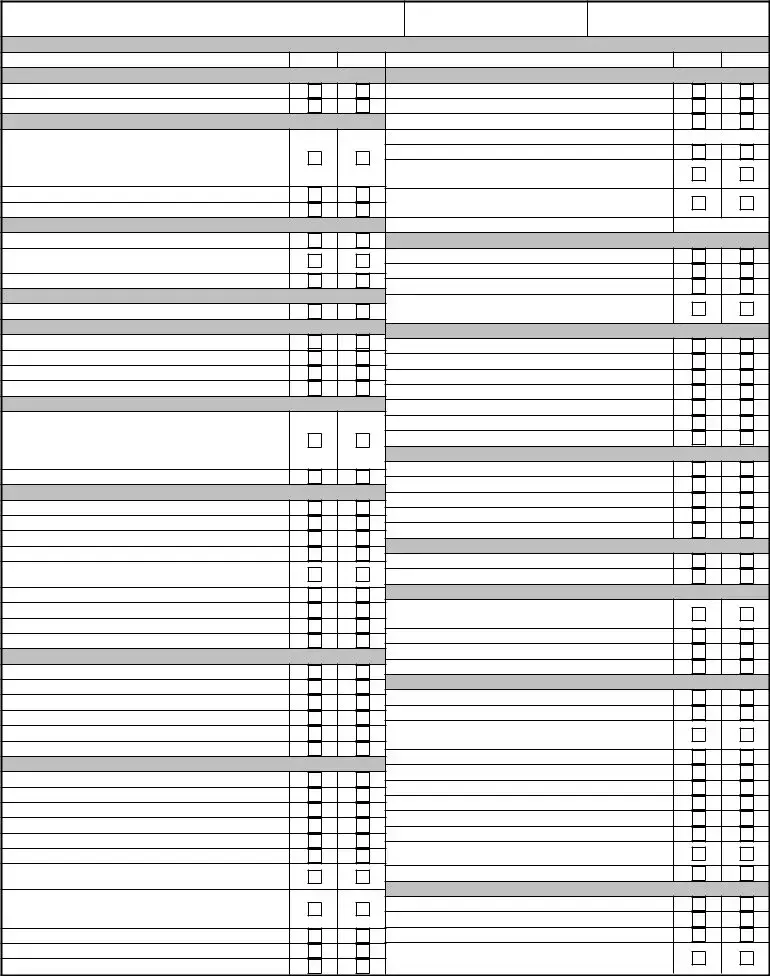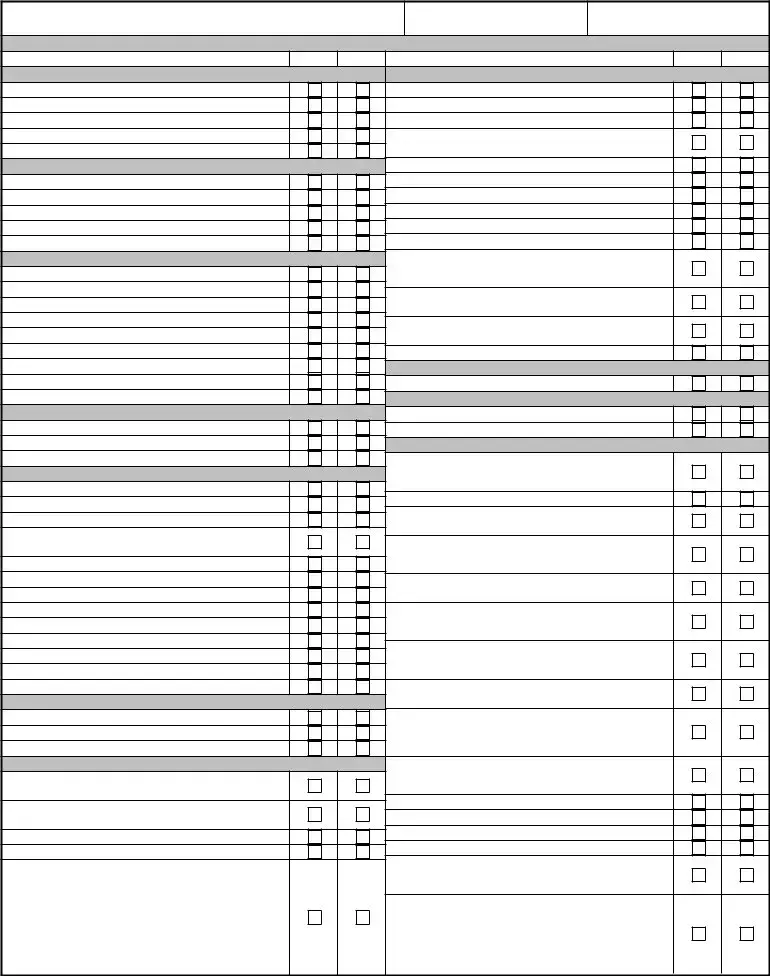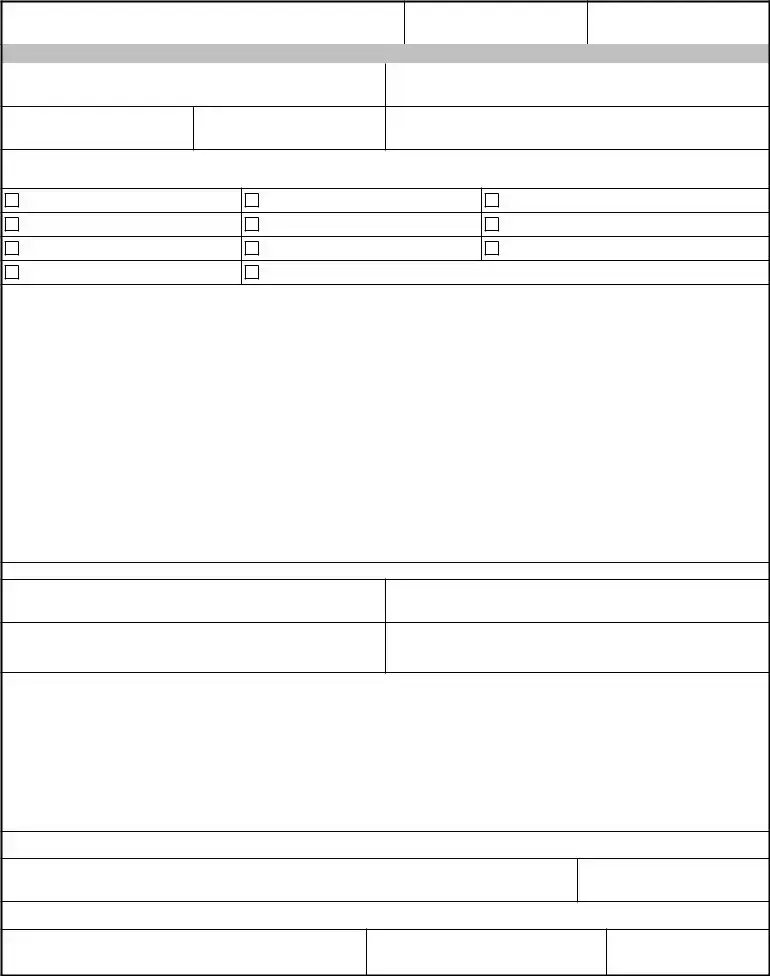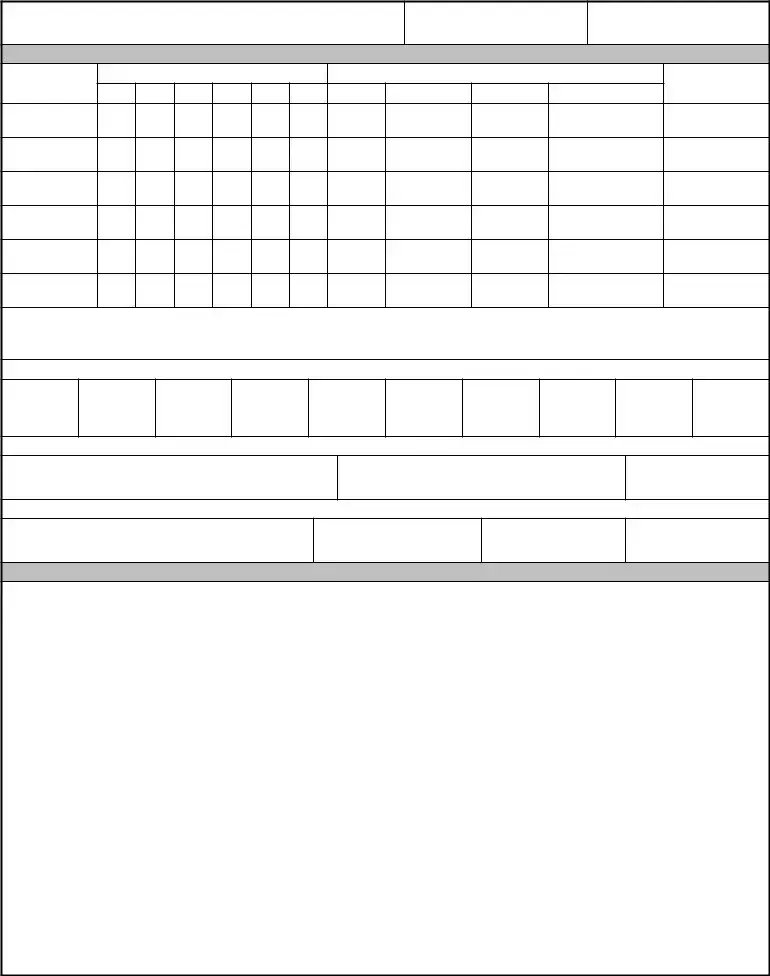Completing the DD Form 2807-2, the Accessions Medical History Report, is a significant step in the enlistment process for individuals aspiring to join the U.S. military. However, many applicants make mistakes during this process that can delay or jeopardize their application. Understanding these common errors can help ensure a smoother submission.
One prevalent mistake is providing incomplete or inaccurate responses to medical history questions. Every question on the form is crucial, and all positive responses must be thoroughly explained. Omitting details or inaccurately answering these questions can lead to misinterpretation of an applicant's health status. This may result in unnecessary delays or outright disqualification. Applicants should take the time to review their medical history and ensure that every relevant detail is accurately captured.
Another mistake involves misunderstanding the requirement for supporting medical documents. If an applicant has been treated by any health care provider or has been hospitalized, specific documentation is required to accompany the DD Form 2807-2. Failing to submit these documents or submitting them late can hinder the medical review process. It is essential to gather the necessary documentation in advance, as the form clearly outlines what types of records are required and the deadlines for submission.
Additionally, many applicants neglect to mark the correct medical history on their forms. For instance, particularly regarding eye care, any past surgeries or treatments must be highlighted. Inconsistencies or failure to report this information can raise red flags during the evaluation process. Ensuring accuracy in every section, especially those relating to specific medical history, is of utmost importance.
Another common error is misunderstanding the authorization statement section. Many applicants may not fully comprehend the implications of providing or withholding certain information, such as educational records and medical history. This could lead to confusion later, particularly if an applicant is disqualified for not having provided necessary records. It is critical for applicants to understand that signing the form indicates full awareness of the information required and its intended use.
Lastly, applicants often underestimate the importance of maintaining confidentiality when submitting their forms and supporting documents. Many fail to seal documents properly or mislabel envelopes. A failure to mark submissions as "CONFIDENTIAL" can pose risks to personal privacy and may result in mishandling of sensitive information. Attention to detail in both the form and how it is presented can significantly impact the security and efficiency of the overall process.
